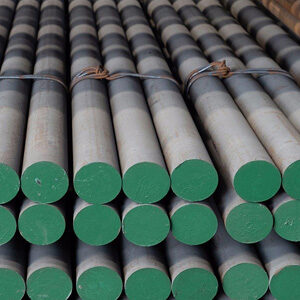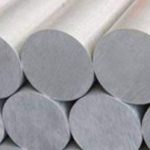Welcome to My Blog!
Before we dive into the content, I’d love for you to join me on my social media platforms where I share more insights, engage with the community, and post updates. Here’s how you can connect with me:
Facebook:https://www.facebook.com/profile.php?id=100087990137347
LinkedIn:https://www.linkedin.com/company/89825762/admin/dashboard/
YouTube:www.youtube.com/@carbonsteelsupply-kj9lw
TikTok:www.tiktok.com/@carbonsteelsupply
Now, let’s get started on our journey together. I hope you find the content here insightful, engaging, and valuable.
Introduction

P20 tool steel is a popular choice in the manufacturing industry due to its excellent properties and versatility. Known for its high toughness and wear resistance, tool steel P20 is often used for making molds, dies, and other tooling applications. This article explores the various advantages of P20 tool steel in manufacturing, its applications, properties, and more.
Understanding P20 Tool Steel
P20 tool steel is an alloy steel that contains chromium, molybdenum, and nickel, which contribute to its strength and durability. It is characterized by its ability to withstand high temperatures and pressures, making it suitable for various manufacturing processes. The chemical composition of P20 tool steel is crucial in determining its performance and applications.
| Element | Composition (%) |
|---|---|
| Carbon (C) | 0.40 |
| Chromium (Cr) | 1.40 |
| Molybdenum (Mo) | 0.40 |
| Nickel (Ni) | 1.00 |
| Manganese (Mn) | 0.80 |
| Silicon (Si) | 0.40 |
Key Advantages of P20 Tool Steel
- High Toughness
P20 tool steel offers exceptional toughness, allowing it to withstand impact and shock loads during manufacturing processes. This property is essential for tools that require durability in high-stress environments. - Wear Resistance
One of the standout features of tool steel P20 is its wear resistance. It maintains its sharpness and structural integrity even after extensive use, reducing the frequency of tool replacements. - Ease of Machinability
P20 tool steel is known for its good machinability. This means that it can be easily shaped and formed into complex geometries, making it an ideal choice for intricate tooling applications. - Versatility in Applications
P20 tool steel is widely used in various manufacturing applications, including injection molds, die casting, and plastic molds. Its versatility allows it to cater to diverse industries, from automotive to consumer goods. - Heat Treatment Capability
P20 tool steel can be heat treated to enhance its hardness and wear resistance. This ability to undergo heat treatment makes it adaptable to specific manufacturing requirements. - Cost-Effectiveness
Given its performance characteristics,tool steel P20 offers a cost-effective solution for manufacturers. Its durability and long service life lead to lower overall production costs. - Consistency in Quality
P20 tool steel is known for its consistent quality, ensuring that manufacturers can rely on its performance across various production runs. This consistency is crucial for maintaining product standards.
Applications of P20 Tool Steel
P20 tool steel is utilized in various industries for multiple applications. Some of the primary uses include:
- Injection Molding: P20 tool steel is often used for manufacturing injection molds due to its excellent toughness and wear resistance.
- Die Casting: Its ability to withstand high pressures makes it suitable for die casting applications.
- Plastic Molds: P20 tool steel is commonly employed in creating molds for plastic parts, ensuring durability and precision.
Heat Treatment of P20 Tool Steel
Heat treatment is a critical process that enhances the performance of P20 tool steel. The heat treatment process typically involves:
- Annealing: To relieve stresses and improve machinability.
- Hardening: Involves heating the steel to a specific temperature and then quenching it to increase hardness.
- Tempering: This step reduces brittleness while maintaining strength.
Maintenance of P20 Tool Steel Tools
To ensure the longevity of tools made from tool steel P20, proper maintenance is essential. Here are some maintenance tips:
- Regular Inspection: Frequent checks for wear and damage can prevent failures.
- Cleaning: Keeping tools clean from debris and contaminants enhances their performance.
- Proper Storage: Storing tools in a controlled environment prevents rust and deterioration.
Conclusion

P20 tool steel offers a myriad of advantages that make it a preferred choice in the manufacturing industry. Its high toughness, wear resistance, and ease of machinability provide manufacturers with reliable tooling solutions. By understanding the properties and applications of tool steel P20, companies can optimize their production processes and enhance product quality.
FAQ
- What industries commonly use P20 tool steel?
P20 tool steel is used in automotive, consumer goods, and electronics industries, primarily for molds and tooling. - Can P20 tool steel be welded?
Yes, but special precautions and techniques are necessary to maintain its properties. - What are the common alternatives to P20 tool steel?
Alternatives include S7 and H13 tool steels, depending on specific application needs. - Is heat treatment necessary for P20 tool steel?
While it can be used without heat treatment, heat treating enhances its performance. - What is the typical hardness of P20 tool steel after treatment?
After proper heat treatment, tool steel P20 can achieve a hardness of 28-32 HRC.

